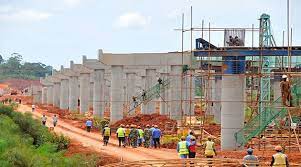The East African Community (EAC) is prioritizing infrastructure development in the 2023/2024 financial year in a bid to open up the region. This will signal a break from a three-year standoff blamed on the Covid-19 pandemic. Infrastructure development within the region is central to facilitating intra-regional trade and the movement of people, goods and services which promote regional integration.
It is in this regard, the establishment Treaty of the East African Community states that the Partner States’ provision of basic infrastructure shall be one of the Operational Principles of the EAC members. It also outlines in greater detail the need for co-operation in infrastructure and services within the EAC and identifies the key aspects of this co-operation and these include: 1.The harmonisation of regulatory laws, rules and practices.
- The construction and maintenance of infrastructure in Partner States and review and re-design of intermodal transport systems, among others.
EAC infrastructure Budget estimates .
The EAC on Tuesday13th 2023 tabled before the East African Legislative Assembly (Eala) budget estimates totaling USD103,842,880 for the 2023/2024, out of which 43 percent (USD forty four million), funded by EAC members, will be used on infrastructure projects to spur intra-EAC trade. This is an increase by 13.4 percent to $74.03 billion in 2022 from $65.268 billion in 2021.
Also read:Plans for construction of EAC Secretariat headquarters in Arusha, Tanzania, forging ahead
The bloc has this year secured funding for the following road projects in the region:
- Road connecting Kenya and Tanzania though Lunga Lunga.
- Road connecting Tanzania to Burundi through Kasulu;
- Road connecting Kenya to Uganda through the Busia border.
- It has also prioritised railway, air and water/port transport which are key to attracting investment into the region, improving competitiveness, and promoting trade.
The EAC infrastructure council chair said that the the secretariat will continue implementing the previous regime multinational road projects linking partner states and the Phase 2 of the One Stop Border Post programme including the design, construction and operationalization of prioritized One Stop Border Post within the region to enhance regional integration and trade facilitation.

